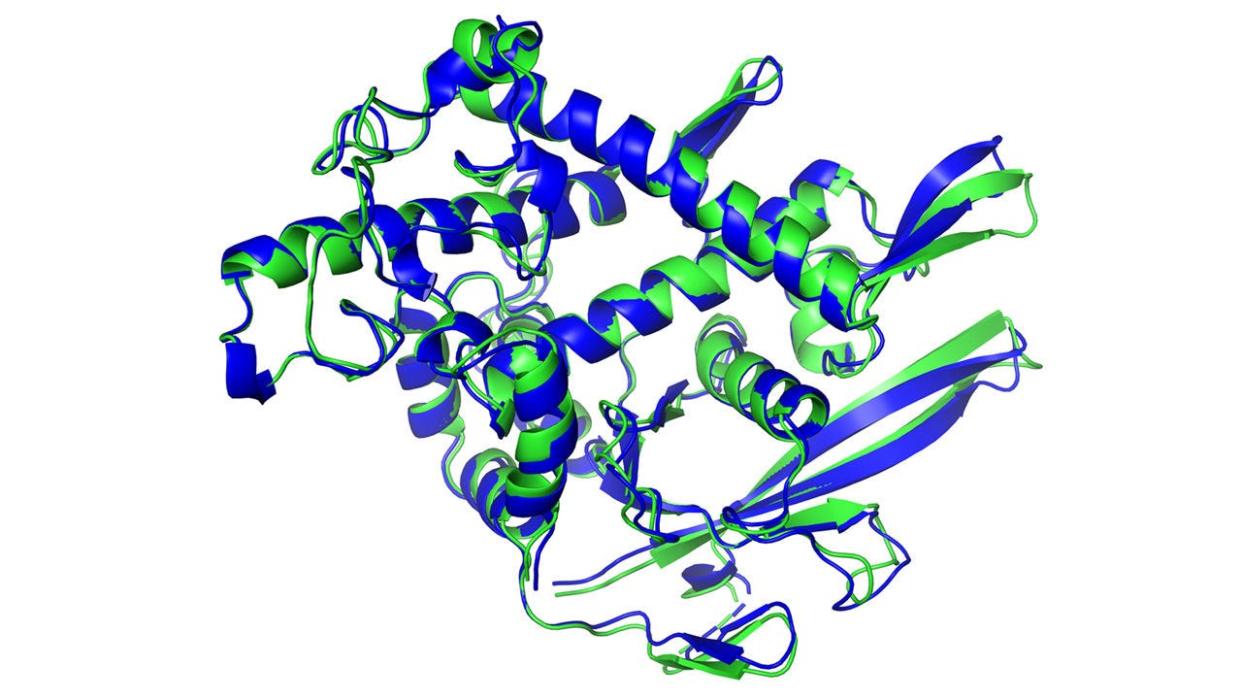'Stunning advance' on 'protein folding': A 50-year-old science problem solved and that could mean big things

A new discovery about "protein folding" could unlock a world of possibilities into the understanding of everything from diseases to drugs, researchers say.
The breakthrough that is sending ripples of excitement through the science and medical communities this week deals with the shapes tiny proteins in our bodies – essential to all life – fold into.
The so-called "protein-folding problem" has puzzled scientists for five decades, and the discovery this week from the London-based artificial intelligence lab DeepMind has been heralded as a major milestone.
"This computational work represents a stunning advance on the protein-folding problem, a 50-year old grand challenge in biology," said Venki Ramakrishnan, president of the U.K.'s Royal Society. "It has occurred decades before many people in the field would have predicted. It will be exciting to see the many ways in which it will fundamentally change biological research.”
'The Ultimate': Astronomers want to put a huge telescope on the moon to study the Big Bang
This isn't your typical space rock: There's a metal asteroid out there worth $10,000 quadrillion
Proteins are essential to life, supporting practically all of its functions, according to DeepMind, which is owned by Google. They are large, complex molecules, made up of chains of amino acids, and what a protein does largely depends on its unique 3D structure.
The ability to predict protein structures accurately enables a better understanding of what they do and how they work.
When proteins are translated from their DNA codes, they quickly transform from a non-functional, unfolded state into their folded, functional state. Problems in folding can lead to diseases such as Alzheimer's and Parkinson's.
"Many of the greatest challenges facing society, like developing treatments for diseases or finding enzymes that break down industrial waste, are fundamentally tied to proteins and the role they play," DeepMind told USA TODAY.
The company’s breakthrough essentially means that it figured out how to use artificial intelligence to deliver relatively quick answers to questions about protein structure and function that would take many months or years to solve using currently available methods, according to STAT News.
Lunar discovery: Water discovered on sunlit part of the moon for the first time, NASA says
DeepMind’s program, called AlphaFold, outperformed about 100 other teams in a biennial protein-structure prediction challenge called CASP, short for Critical Assessment of Structure Prediction, according to the journal Nature.
“We have been stuck on this one problem – how do proteins fold up – for nearly 50 years," said University of Maryland professor John Moult, co-founder and chair of CASP. "To see DeepMind produce a solution for this, having worked personally on this problem for so long and after so many stops and starts wondering if we’d ever get there, is a very special moment.”
A spokesperson for DeepMind told USA TODAY that "our goal in pursuing these kinds of challenges is to make a meaningful contribution to the acceleration of scientific research – that’s why we want to contribute to this field, building on the progress made by many more before us, and collaborate with the community to better understand the world of discovery it may open up."
Researchers from DeepMind plan to publish their results in a peer-reviewed journal in the near future.
This article originally appeared on USA TODAY: Protein folding discovery a major breakthrough from DeepMind

